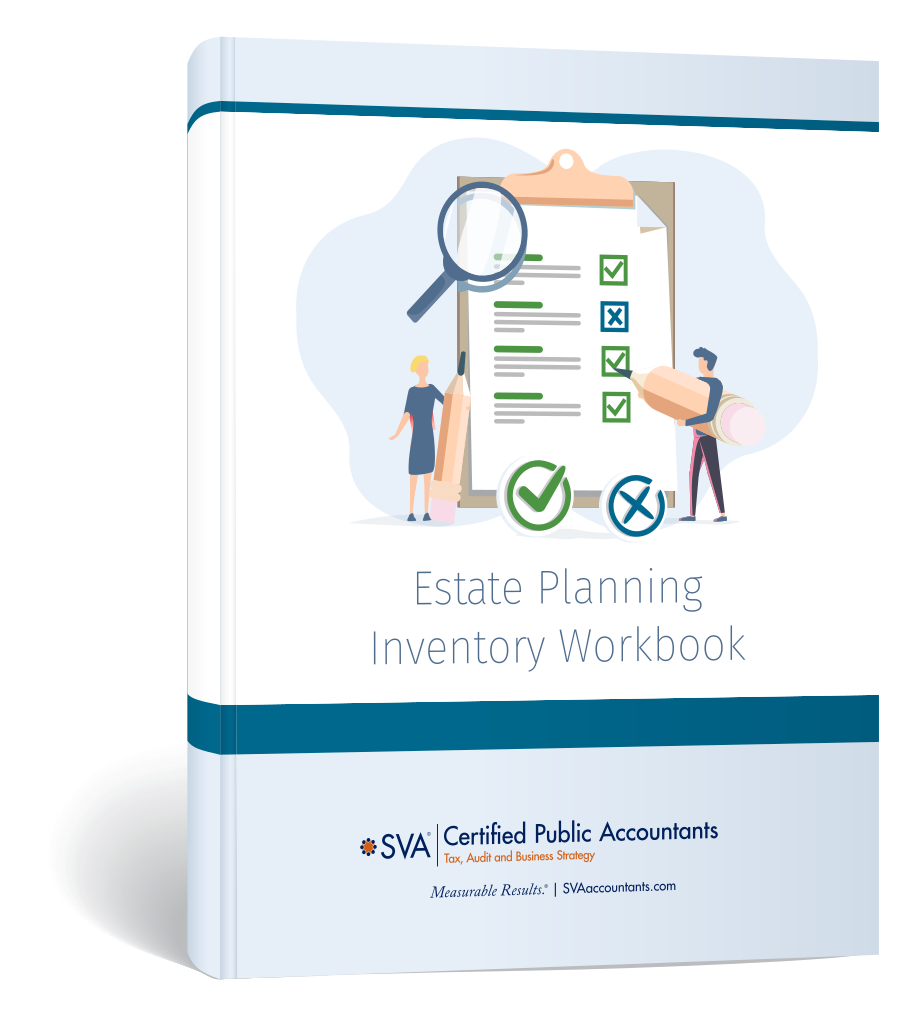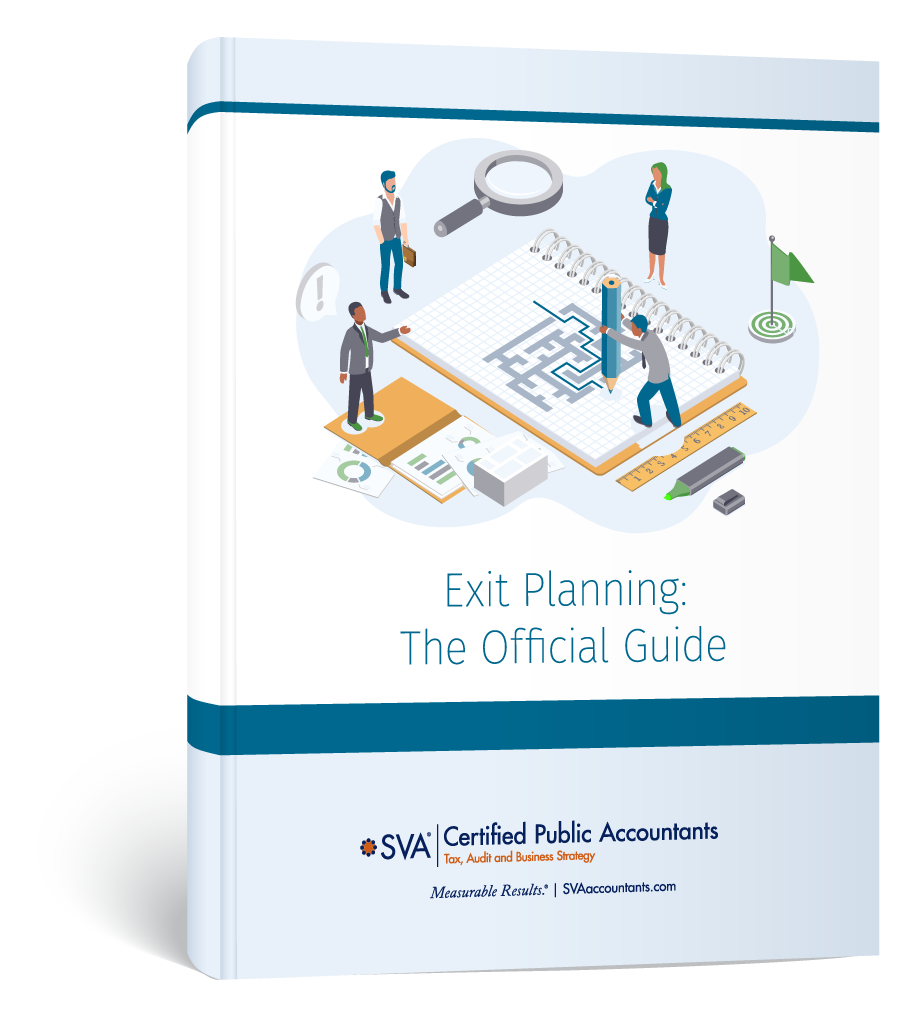Everyone has an estate and should have a plan in place to protect their assets and family when they are unable to. Your estate includes everything you own including physical assets, intangible items (such as digital assets, insurance, and savings), and even your debt obligations.
Estate planning is the process of outlining in advance the people or organizations who will receive your assets and the management of how those assets will be received. It is also your opportunity to establish your wishes for how and by whom your minor children might be cared for. An estate plan typically involves planning and documentation including:
Sometimes people think an estate plan is only for high-net-worth families, but that is not the case. To minimize taxes and ensure a smooth asset transfer, you need documents in place. It is not just at death that estate planning matters, incapacity is a concern as well.
It also includes planning for:
 BIZ TIP: Estate Planning Basics - When, Why, and How
BIZ TIP: Estate Planning Basics - When, Why, and How
Your estate planning team should at least include a tax professional, an estate planning attorney, and a financial advisor. It may also include others such as valuation experts or insurance professionals. This advisory team will work together to ensure you have an estate plan that reflects your current and future needs. There may be some overlap in the responsibilities with this team of advisors. However, each still has their own expertise and together will provide the best deliverables for you and your family.
Start by selecting a quarterback for your advisory team. Reach out to the advisors you already have experience with as they likely have recommendations for you. If you are not receiving the service you desire, now’s the time to try a new approach. Ask your friends and family if they work with someone they could refer you to. Interview your team to make sure you are comfortable with their process and experience.
Once you have assembled your team, the process should follow these steps:
Once you have your estate plan established, it's time to think ahead of who will help settle that estate. The emotional time of loved ones passing can be difficult, yet many decisions need to be made. Getting professional assistance to settle an estate may be the appropriate decision for your family. The designated person or firm who will settle the estate should have the experience needed to ensure that everything is taken care of promptly. The process may take years before everything is settled.
Estate settlement includes (along with what might be much more depending on the complexity of the facts):
Download our Loss of a Loved One Checklist and our Estate Settlement Timeline:
Every estate is different, and experienced professionals at SVA are here to help guide you through the process.
Business professionals need easy access to information to make timely decisions. SVA has what you need, when you need it. Choose a topic below or just contact us directly. Our expertise is ready anytime you need it.
When you created your estate plan, you probably stored the documents in a safe place and put them out of your mind. As your life moves on, your estate plan should also be adjusted for those life changes.
Because an estate plan involves designating beneficiaries, legal roles, asset distribution, and medical and financial care instructions, the plan should occasionally be reviewed. SVA will review your existing plan and help you adjust as needed to accurately reflect your current goals and wishes.
We can also liaise with your other advisors, such as with your attorney, to make the draft of any new documents a smooth and efficient process.
For gift and estate tax purposes, the fair market value of the property transferred to another party is generally measured on the date of the transfer based on the “willing-buyer, willing-seller” test. Assets without a readily ascertainable value must have the value determined using methods recognized by taxing authorities and courts to validate the price.
SVA assists clients through all phases of the valuation process including audit and tax court proceedings. We work directly with the client’s attorneys and estate planning professionals to resolve issues that arise including valuation discounts and premiums, pass-through entity and built-in gains tax calculations, and issues related to Family Limited Partnerships (FLPs) or LLCs.
Understanding the “tax” value of what is in your estate is important to assess the gift, estate, and generation-skipping transfer tax exposures. It is also important to the development of a cohesive wealth transfer plan.
Philanthropy and supporting nonprofit organizations are the cornerstone of many estate plans. To make the most of your charitable giving funds, both during your lifetime and after your death, you will want the advice of a tax expert who understands your goals as well as the best way to minimize your tax obligations.
These strategies may include:
The options will depend on your personal situation, tax bracket, income, etc. SVA will take the time to understand your goals and develop a tax-advantaged solution to help you meet this critical objective.
Estate planning and succession planning must go hand in hand for a successful transition of your business.
Succession planning identifies who will take over the company, while estate planning involves determining the distribution of your assets through gifting strategies, wills, trusts, etc. It is critical to undertake both succession and estate planning together to minimize transaction costs on the transition of your business and potential associated gift, estate, and generation-skipping transfer taxes down the road.
Do you have both a clear succession plan and a well-documented estate plan? And are the two compatible in every respect? To make sure you can answer “yes” to both of these questions, please contact us.
SVA can help you develop plans that will distribute your assets per your wishes while putting your company in the best position to succeed going forward.
The final step in estate planning is settling all aspects of the estate. There can be many administrative tasks and issues to deal with when the family is coping with the loss of their loved one. That’s where SVA can help.
We can guide you through the process of valuation and inventory of assets, disclaiming assets, funding trusts, and transferring assets. As you develop your estate plan, include a plan to settle the estate when the time comes. We can customize our estate settlement services to meet your needs.
Every estate is different, and experienced professionals at SVA are here to help guide you through the process.
Alongside trust, estate, and gift planning are the compliance activities (tax preparation) that may be required when establishing trusts or estates, or when gifting. Navigating IRS Forms 1041, 706, and 709 can be gruesome even for the most experienced.
At SVA, we have deep experience in compliance related to trust, estate, and gift activities. We determine when and what is required to be filed while working with you as the responsible fiduciary/taxpayer to accurately and timely complete any necessary filings. We will also proactively work with you during the planning process to minimize any relevant taxes associated with such filings.
The tax filings are not only essential to comply with IRS requirements but, in many instances, Form K-1s are required to inform beneficiaries of what income or deductions they should include on their tax returns related to trust activities each year.
While preparing the necessary returns, we will also determine if the trust distributions are complying with the trust provisions as well as if the trust bookkeeping meets the guidelines of the trust document or state law.

This eGuide explains what estate planning is and why it is so important.

This eGuide explains how estate planning is to consider when planning your business exit strategy.

The exit planning process has many moving parts. This eguide will provide the information you need to prepare for the successful exit of your business.
Services
Madison, WI
1221 John Q Hammons Dr, Suite 100
Madison, WI 53717
(608) 831-8181
Milwaukee, WI
18650 W. Corporate Drive, Suite 200
Brookfield, WI 53045
(262) 641-6888
Colorado Springs, CO
10855 Hidden Pool Heights, Suite 340
Colorado Springs, CO 80908
(719) 413-5551

Are you in the know on the latest business trends, tips, strategies, and tax implications? SVA’s Biz Tips are quick reads on timely information sent to you as soon as they are published.
Copyright © 2026 SVA Certified Public Accountants | Privacy Policy | Cookie Policy | CCPA